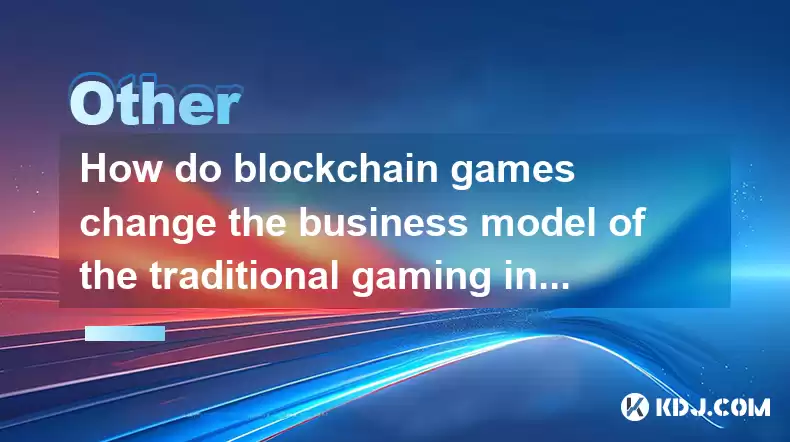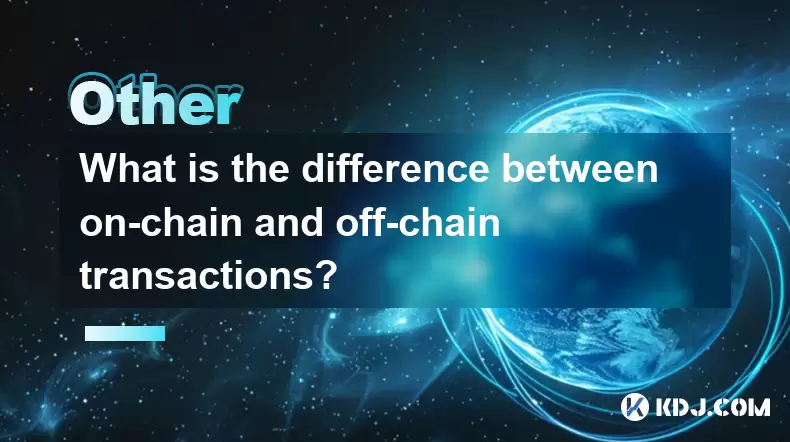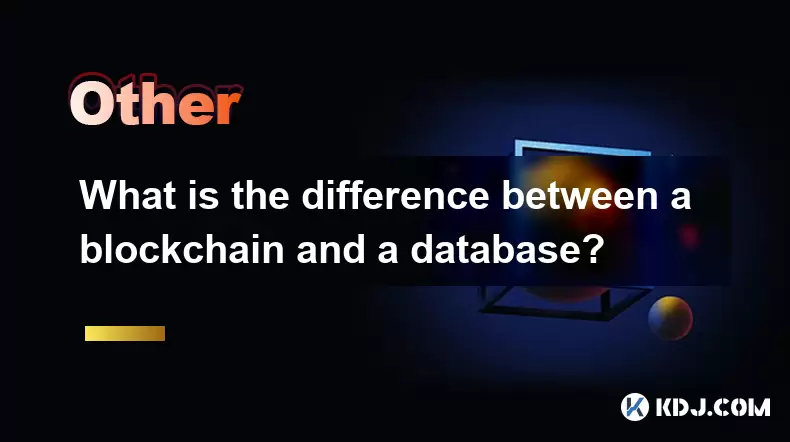-
 Bitcoin
Bitcoin $114400
1.32% -
 Ethereum
Ethereum $3499
2.20% -
 XRP
XRP $2.922
4.26% -
 Tether USDt
Tether USDt $0.0000
0.03% -
 BNB
BNB $752.6
1.53% -
 Solana
Solana $161.8
1.64% -
 USDC
USDC $0.9999
0.01% -
 TRON
TRON $0.3267
1.32% -
 Dogecoin
Dogecoin $0.1991
3.02% -
 Cardano
Cardano $0.7251
3.29% -
 Hyperliquid
Hyperliquid $38.32
3.36% -
 Stellar
Stellar $0.3972
7.58% -
 Sui
Sui $3.437
2.74% -
 Chainlink
Chainlink $16.29
3.65% -
 Bitcoin Cash
Bitcoin Cash $545.3
3.70% -
 Hedera
Hedera $0.2482
7.49% -
 Ethena USDe
Ethena USDe $1.001
0.03% -
 Avalanche
Avalanche $21.40
2.02% -
 Toncoin
Toncoin $3.579
1.56% -
 Litecoin
Litecoin $109.3
2.20% -
 UNUS SED LEO
UNUS SED LEO $8.951
-0.18% -
 Shiba Inu
Shiba Inu $0.00001220
2.75% -
 Polkadot
Polkadot $3.613
2.99% -
 Uniswap
Uniswap $9.173
3.78% -
 Monero
Monero $302.6
2.62% -
 Dai
Dai $0.0000
0.00% -
 Bitget Token
Bitget Token $4.320
1.52% -
 Pepe
Pepe $0.00001048
3.40% -
 Cronos
Cronos $0.1314
4.33% -
 Aave
Aave $259.4
3.54%
How do blockchain games change the business model of the traditional gaming industry?
Blockchain games revolutionize gaming with NFTs, DeFi, and P2E, shifting how games are developed, monetized, and played, offering new opportunities for developers and players alike.
Apr 15, 2025 at 07:35 am

Blockchain games have introduced a revolutionary shift in the business model of the traditional gaming industry by leveraging the decentralized nature of blockchain technology. This transformation is primarily driven by the introduction of non-fungible tokens (NFTs), decentralized finance (DeFi), and play-to-earn (P2E) mechanics. These innovations have altered how games are developed, monetized, and experienced by players, offering new opportunities for both developers and gamers.
The Rise of Non-Fungible Tokens (NFTs) in Gaming
NFTs have become a cornerstone of blockchain gaming, enabling players to own, buy, and sell unique in-game assets. In traditional gaming, players often invest significant time and money into acquiring in-game items, but these items are typically owned by the game developers. With NFTs, players have true ownership of their digital assets, which can be traded on secondary markets. This shift not only empowers players but also creates a new revenue stream for developers through transaction fees and royalties.
Decentralized Finance (DeFi) and In-Game Economies
Blockchain games often incorporate DeFi elements, allowing players to engage in financial activities within the game's ecosystem. Traditional games may have in-game currencies, but these are controlled by centralized entities. In contrast, blockchain games use cryptocurrencies and smart contracts to facilitate decentralized financial transactions. Players can earn, stake, or lend their in-game assets, creating a dynamic economy that is not solely dependent on the game developers' decisions.
Play-to-Earn (P2E) Mechanics
The introduction of play-to-earn mechanics has been a game-changer in the industry. In traditional gaming, monetization often relies on upfront purchases or in-app purchases. P2E models allow players to earn real-world value through their gameplay, whether through earning tokens that can be traded for other cryptocurrencies or directly for fiat currency. This model has attracted a new demographic of players who see gaming as a potential source of income, rather than just entertainment.
Impact on Game Development and Monetization
The shift to blockchain gaming has influenced how games are developed and monetized. Traditional game development focuses on creating engaging content and monetizing through sales and microtransactions. Blockchain games require developers to integrate blockchain technology, manage smart contracts, and ensure the security of the in-game economy. This complexity can lead to higher development costs but also opens up new monetization avenues through NFTs and DeFi. Developers can earn ongoing revenue from secondary market transactions and DeFi activities, reducing their reliance on initial sales.
Player Engagement and Community Building
Blockchain games foster a different kind of player engagement and community building compared to traditional games. In traditional gaming, communities are often built around forums, social media, and in-game events. Blockchain games leverage the transparency and immutability of blockchain to create trust among players. Communities can participate in governance through decentralized autonomous organizations (DAOs), influencing the direction of the game. This level of involvement can lead to more loyal and active communities, which are crucial for the long-term success of a game.
Challenges and Considerations
Despite the potential benefits, transitioning to blockchain gaming comes with challenges. Traditional game developers may face a steep learning curve in understanding and implementing blockchain technology. Security concerns, regulatory compliance, and the volatility of cryptocurrencies are also significant considerations. Developers must balance the need for a seamless gaming experience with the complexities of blockchain integration. Additionally, the environmental impact of some blockchain networks, particularly those using proof-of-work consensus mechanisms, has raised concerns among environmentally conscious players and developers.
Case Studies of Successful Blockchain Games
Several blockchain games have successfully implemented these new business models, providing valuable insights into their impact. Axie Infinity, for example, has popularized the P2E model, allowing players to breed, battle, and trade digital creatures called Axies. The game has created a vibrant economy where players can earn significant income, demonstrating the potential of blockchain gaming. Another example is Decentraland, a virtual world where players can buy, sell, and develop land parcels using the MANA cryptocurrency. These case studies highlight how blockchain games can create unique and engaging experiences that go beyond traditional gaming.
NFTs and the Secondary Market
The secondary market for NFTs has become a significant aspect of blockchain gaming. Players can trade their in-game assets on platforms like OpenSea and Rarible, often at prices determined by supply and demand. This market adds a layer of economic activity that traditional games do not have. Developers can benefit from royalties on these transactions, providing a continuous revenue stream. However, the volatility of NFT prices can also lead to risks for players, who may see the value of their assets fluctuate significantly.
The Role of Smart Contracts
Smart contracts play a crucial role in the functionality of blockchain games. These self-executing contracts automate many aspects of the game, from asset transfers to reward distribution. In traditional gaming, these processes are managed by centralized servers, which can be a single point of failure. Smart contracts ensure transparency and reduce the need for intermediaries, enhancing the trust and efficiency of the game's ecosystem. Developers must carefully design and audit these contracts to ensure they function as intended and are secure against potential exploits.
Integration with Existing Gaming Platforms
The integration of blockchain games with existing gaming platforms presents both opportunities and challenges. Some traditional gaming platforms are exploring partnerships with blockchain game developers to offer new experiences to their users. However, the technical and regulatory complexities of integrating blockchain technology into established platforms can be significant. Developers must navigate these challenges while ensuring that the gaming experience remains seamless and enjoyable for players.
Frequently Asked Questions
Q: How do blockchain games ensure the security of in-game assets?
A: Blockchain games use cryptographic security and decentralized networks to protect in-game assets. Each NFT is uniquely identified and recorded on the blockchain, making it nearly impossible to counterfeit or alter. Smart contracts also automate transactions, reducing the risk of fraud. Developers often implement additional security measures, such as multi-signature wallets and regular audits, to further safeguard player assets.
Q: Can traditional game developers easily transition to blockchain gaming?
A: Transitioning to blockchain gaming can be challenging for traditional developers due to the need to understand and integrate blockchain technology. Developers must learn about smart contracts, NFTs, and DeFi, which requires new skills and resources. However, with the right expertise and partnerships, traditional developers can successfully enter the blockchain gaming space and leverage its unique monetization opportunities.
Q: How do regulatory considerations affect blockchain gaming?
A: Regulatory considerations can significantly impact blockchain gaming, particularly in areas such as cryptocurrency transactions and NFT sales. Developers must comply with financial regulations, anti-money laundering (AML) laws, and know-your-customer (KYC) requirements. The regulatory landscape varies by country, and developers must navigate these complexities to ensure their games are compliant and accessible to a global audience.
Q: What are the environmental concerns associated with blockchain gaming?
A: Some blockchain networks, particularly those using proof-of-work consensus mechanisms, consume significant amounts of energy, raising environmental concerns. Developers are exploring more sustainable alternatives, such as proof-of-stake networks, to reduce the environmental impact. Players and developers alike are increasingly aware of these issues and are pushing for more eco-friendly solutions in the blockchain gaming space.
Disclaimer:info@kdj.com
The information provided is not trading advice. kdj.com does not assume any responsibility for any investments made based on the information provided in this article. Cryptocurrencies are highly volatile and it is highly recommended that you invest with caution after thorough research!
If you believe that the content used on this website infringes your copyright, please contact us immediately (info@kdj.com) and we will delete it promptly.
- Altcoin Rotation, Smart Money, and Investment Trends: What's the Deal?
- 2025-08-04 12:30:11
- Crypto, Pi Network, Movement: Is Pi Coin the Next Big Thing?
- 2025-08-04 12:30:11
- Bitcoin, Metaplanet, and Institutional Confidence: A New Era?
- 2025-08-04 12:50:12
- XRP Price, Ripple CTO, and Tokenized Finance: A New York Minute on Crypto
- 2025-08-04 12:50:12
- Pi Coin: Future Access or Early Adoption Blues?
- 2025-08-04 12:55:11
- Ethereum Liquidations Rock Crypto Market: What's a New Yorker to Do?
- 2025-08-04 13:00:17
Related knowledge

What is the difference between on-chain and off-chain transactions?
Aug 02,2025 at 04:22pm
Understanding On-Chain TransactionsOn-chain transactions refer to digital asset transfers that are recorded directly on a blockchain ledger. These tra...

How are blocks linked together?
Aug 04,2025 at 06:56am
Understanding the Structure of a BlockchainA blockchain is a decentralized digital ledger composed of a sequence of blocks, each containing a list of ...

What is a node's role in a blockchain network?
Aug 03,2025 at 03:16pm
Understanding the Function of a Node in a Blockchain NetworkA node is a fundamental component of any blockchain network, acting as a participant that ...

How are transactions verified on a blockchain?
Aug 04,2025 at 12:35am
Understanding the Role of Nodes in Transaction VerificationIn a blockchain network, nodes are fundamental components responsible for maintaining the i...

What is the double-spending problem and how does blockchain prevent it?
Aug 02,2025 at 01:07pm
Understanding the Double-Spending ProblemThe double-spending problem is a fundamental challenge in digital currency systems where the same digital tok...

What is the difference between a blockchain and a database?
Aug 01,2025 at 09:36pm
Understanding the Core Structure of a BlockchainA blockchain is a decentralized digital ledger that records data in a series of immutable blocks linke...

What is the difference between on-chain and off-chain transactions?
Aug 02,2025 at 04:22pm
Understanding On-Chain TransactionsOn-chain transactions refer to digital asset transfers that are recorded directly on a blockchain ledger. These tra...

How are blocks linked together?
Aug 04,2025 at 06:56am
Understanding the Structure of a BlockchainA blockchain is a decentralized digital ledger composed of a sequence of blocks, each containing a list of ...

What is a node's role in a blockchain network?
Aug 03,2025 at 03:16pm
Understanding the Function of a Node in a Blockchain NetworkA node is a fundamental component of any blockchain network, acting as a participant that ...

How are transactions verified on a blockchain?
Aug 04,2025 at 12:35am
Understanding the Role of Nodes in Transaction VerificationIn a blockchain network, nodes are fundamental components responsible for maintaining the i...

What is the double-spending problem and how does blockchain prevent it?
Aug 02,2025 at 01:07pm
Understanding the Double-Spending ProblemThe double-spending problem is a fundamental challenge in digital currency systems where the same digital tok...

What is the difference between a blockchain and a database?
Aug 01,2025 at 09:36pm
Understanding the Core Structure of a BlockchainA blockchain is a decentralized digital ledger that records data in a series of immutable blocks linke...
See all articles

























































































